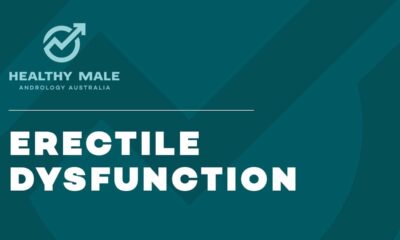Health
Sugar-sweetened beverages cause kidney, heart diseases, FG warns

Sugar-sweetened beverages cause kidney, heart diseases, FG warns
The federal government has discouraged the consumption of sugar-sweetened beverages (SSB) because it is capable of causing diabetes and other non-communicable diseases (NCDs).
Ali Pate, the Coordinating Minister of Health and Social Welfare, spoke in Abuja on Tuesday at the National Conference on Sugar-Sweetened Beverages (SSB) Tax and Health Financing in Nigeria.
The minister, who spoke on the conference theme “Health Tax as a Recipe for Improved Healthcare Financing”, was represented by Olubunmi Aribeana, the health ministry’s director of the food and drug services department.
“By discouraging the consumption of sugar-laden beverages, we aim to reduce the prevalence of obesity and diabetes and, in turn, alleviate the financial burden on our healthcare system,” said Mr Pate.
He recalled that the federal government introduced the SSB tax in 2021 to reduce its consumption and the prevalence of obesity, diabetes and other related diseases.
“Sugar-sweetened beverages (SSBs) are drinks that contain added natural sweeteners, such as table sugar, high-fructose corn syrup, or fruit juice concentrates, all of which have similar metabolic effects.
“The consumption of SSBs has been linked to numerous health risks, including obesity, heart disease, weight gain, type 2 diabetes, kidney diseases, non-alcoholic liver disease, tooth decay, cavities, and gout.
“The health burden of SSB consumption is particularly significant in low- and middle-income countries, where rates of obesity and related health problems are on the rise,” Mr Pate explained.
The minister said the country faced a growing health crisis with SSB-related diseases such as obesity and diabetes, adding that the associated healthcare costs were escalating at an alarming rate.
READ ALSO:
- Two internet fraudsters jailed 4 years in Port Harcourt
- Bank hacking kingpin, Chima Nwigwe, three others arrested in Abuja
- Security agencies not sharing information – Minister laments
“Recent reviews and meta-analyses by the International Diabetes Foundation (IDF) show that as of 2021, over 3.6 million people are diabetic, with 53 per cent of these citizens undiagnosed, and this number is expected to rise to about five million by the year 2030.
“The cost of treating diabetes per person has surged from an average of N60,000 in 2011 to N800,000 in 2021, and it is projected to exceed N1 Million by 2030,” Mr Pate said.
According to him, the goal of the SSB tax is to reduce the consumption of these unhealthy beverages, ultimately preventing obesity and its related diseases.
The minister called on the food and beverage industry, healthcare providers, civil society organisations and other relevant stakeholders to strengthen their collaboration to promote healthier lifestyles and ensure the sustainability of the nation’s health systems.
He said in line with the government’s vision, the 2023 National Policy on Food Safety and Quality and its Implementation Plan also prioritised the consumption of healthy foods.
According to him, the plan specifically expects the government at every level to develop strategies for reducing the consumption of sugar, alcohol, and sodium and eliminating trans-fatty acids (TFAs) in Nigerian diets.
The minister restated the federal government’s commitment to ensuring the food supply chain supports the health and well-being of the population by minimising the risks associated with poor dietary choices.
In his remarks, Akinbode Oluwafemi, executive director, Corporate Accountability and Public Participation Africa (CAPPA), said the current SSB tax that imposed an excise duty of N10 per litre on all non-alcoholic and sweetened beverages did not meet global standards.
Mr Oluwafemi said, “At N10 per litre, Nigeria’s current tax on SSBs falls short of the World Health Organisation’s recommendation and global best practice of a minimum of 20 per cent of total retail prices.
“In fact, the impact of our current tax rate has been largely eroded by escalating inflationary pressures, rendering it nearly ineffective, hence the need for a re-evaluation,” he stated.
Sugar-sweetened beverages cause kidney, heart diseases, FG warns
(NAN)
Health
Studies show menopause can reduce women’s memory, concentration by 40%

Studies show menopause can reduce women’s memory, concentration by 40%
Women going through the menopause may experience a significant decline in memory, concentration, and the ability to carry out daily tasks, with research suggesting a drop of up to 40 per cent in cognitive performance. This revelation was highlighted at a recent international conference on women’s health.
Experts warn that as many as four in ten women could be affected, making it increasingly difficult to manage work responsibilities or daily routines. Researchers also note that younger women may experience temporary concentration difficulties at certain points in the menstrual cycle due to hormonal changes, performing better when oestrogen levels peak just before ovulation.
Professor Martha Hickey, an obstetrics and gynaecology expert at Melbourne University, told the American Society for Reproductive Medicine in Boston that compelling evidence now links menopause with declines in attention span, learning ability, and memory function. She identified possible causes, including a drop in oestrogen levels and sleep disruption from night sweats and hot flushes.
READ ALSO:
- South Africa Horror: Gunmen Kill 11 in Pretoria Hostel Shebeen Attack
- Ex-AGF Abubakar Malami denies allegations of terrorism financing, calls report misleading
- Nigerian woman sparks outrage for refusing chemotherapy despite ₦30 million donations over religious Beliefs
“Oestrogen decline during the menopause may affect key areas of the brain responsible for memory and concentration, including the hippocampus, midbrain, and prefrontal cortex,” Professor Hickey said. Brain scans have shown changes in these regions in menopausal women, though she noted that previous research likely underestimated the effects due to less sensitive testing methods.
Professor Hickey is currently studying 105 women in the US undergoing oophorectomy (surgical removal of ovaries), which induces menopause, to further explore cognitive effects. Earlier studies, including a 2001 survey of 12,450 US women, found that post-menopausal women were 40% more likely to report forgetfulness. Another US study involving 16,000 women found that four in ten admitted to experiencing memory problems.
The average age of menopause is 52, although it can occur in the 30s or 40s. The condition is marked by the cessation of ovarian oestrogen production, which also leads to mood swings, hot flushes, and night sweats.
Studies show menopause can reduce women’s memory, concentration by 40%
Health
Scientists Identify Key Immune “Exhaustion Switch,” Opening New Path for Powerful Cancer Treatments

Scientists Identify Key Immune “Exhaustion Switch,” Opening New Path for Powerful Cancer Treatments
In a major scientific breakthrough that could transform cancer care, researchers at Weill Cornell Medicine have uncovered how tumours weaken the body’s immune defences—and how blocking that process can supercharge treatment. The findings, published in Nature Immunology, reveal a critical pathway that drives T cell exhaustion, a major obstacle in modern cancer immunotherapy.
According to the study, cancer cells exploit a molecular signal to drain T cells of their strength, reducing their ability to attack tumours. By blocking this signal, scientists were able to keep T cells active and dramatically enhance their tumour-fighting capacity.
“Our dream is to revive exhausted T cells so the immune system itself can defeat cancer. This discovery brings that future closer,” said co-senior author Dr. Taha Merghoub, noting that T cell exhaustion limits the long-term success of immunotherapies even in patients who initially respond well.
READ ALSO:
- Turkey Football Betting Scandal: 46 Arrested as Match-Fixing Probe Widens
- Four Teenagers Killed in Banki Explosion as Borno Police Probe Deadly IED Blast
- Osimhen Scores Brace as Galatasaray Edge Samsunspor 3-2 in Turkish Super Lig Thriller
The researchers focused on CD47, a protein known as the immune-evading “don’t eat me” signal used by cancer cells. Unexpectedly, the team discovered that T cells also produce CD47—and its levels surge when T cells become exhausted. Tests in mice revealed that animals lacking CD47 developed slower-growing tumours, showing the protein plays a powerful internal role in immune suppression.
Tumours appear to worsen this phenomenon by releasing thrombospondin-1, a protein that binds to CD47 and further weakens T cells. “Remove CD47 or thrombospondin-1, and T cells stay strong,” Merghoub said.
To counter this mechanism, researchers tested TAX2, a peptide that prevents CD47 and thrombospondin-1 from interacting. Mice treated with TAX2 displayed slower growth of melanoma and colorectal tumours, more active T cells, and stronger immune responses. TAX2 also significantly enhanced the effectiveness of PD1 immunotherapy, one of the most widely used cancer treatments.
Lead author Dr. Chien-Huan Weng described TAX2 as a “proof-of-concept,” adding that further work is underway to create safe and targeted ways to block this newly identified exhaustion pathway in human patients.
Scientists say the approach could form a powerful standalone therapy or boost existing immunotherapies, marking one of the most promising advances yet in the fight against cancer.
Scientists Identify Key Immune “Exhaustion Switch,” Opening New Path for Powerful Cancer Treatments
Health
Nigeria joins global ICH elite as NAFDAC achieves full international regulatory Status

Nigeria joins global ICH elite as NAFDAC achieves full international regulatory Status
Nigeria has recorded a major milestone in global health regulation as the National Agency for Food and Drug Administration and Control (NAFDAC) has secured full membership of the International Council for Harmonisation of Technical Requirements for Pharmaceuticals for Human Use (ICH). The achievement positions Nigeria among the world’s most advanced national regulatory authorities and marks a transformative step for the country’s pharmaceutical sector.
The announcement was made during the ICH Assembly held in Singapore, where Nigeria was confirmed as the 24th out of only 25 national regulatory authorities (NRAs) globally recognised for their commitment to harmonised international pharmaceutical standards.
NAFDAC Director General, Prof. Moji Adeyeye, described the development as a “historic breakthrough for Nigeria and the African continent,” noting that full membership would significantly boost the availability of high-quality, safe, and effective medicines for Nigerians.
READ ALSO:
- Supreme Court Strikes Out Osun Suit on Withheld Local Govt Allocations
- DSS Arrests Doctor Providing Medical Support to Bandits in Kwara State
- BREAKING: Rivers Assembly Speaker, 15 Members Defect From PDP to APC
She said:
“Full ICH membership means Nigerians will have better access to high-quality medicines. It confirms that our regulatory scientists can stand shoulder-to-shoulder with the best in the world.”
Nigeria’s journey to full ICH status began in 2022 after the agency secured Observer status and later participated in the 2023 ICH meeting in Vancouver, Canada, where NAFDAC made a formal presentation as part of the evaluation process.
Over the last two years, NAFDAC underwent extensive capacity-building, including training on multiple ICH guidelines, membership in expert working groups, and the hosting of a major international workshop in Lagos in April 2025 on the ICH M13A Bioequivalence Guideline.
Adeyeye credited the agency’s success to a “methodical and structured approach,” supported by Northeastern University, Boston, and the Bill & Melinda Gates Foundation.
Nigeria’s Ambassador to Singapore, H.E. Omayuli Francisca Kemi, praised NAFDAC for demonstrating “leadership, resilience, and expertise” in earning a place on the global regulatory stage.
Full ICH membership grants NAFDAC authority to contribute directly to the formulation of international pharmaceutical standards, while enhancing Nigeria’s capacity to regulate medicines, accelerate access to innovative therapies, and improve confidence in local pharmaceutical manufacturing.
Adeyeye also acknowledged the Federal Government for extending her tenure, saying the continuity was crucial to achieving this milestone.
“We will continue to safeguard the health of the nation—now with the full strength of the ICH global community behind us,” she declared.
NAFDAC expressed appreciation to President Bola Ahmed Tinubu, the Minister of Health and Social Welfare, and its international partners for their support. The agency reaffirmed its commitment to full implementation of ICH standards, strengthening Nigeria’s regulatory system, and advancing pharmaceutical innovation and production.
Nigeria Joins Global ICH Elite as NAFDAC Achieves Full International Regulatory Status
-

 Sports1 day ago
Sports1 day ago2026 FIFA World Cup Draw: England Draw Croatia as Brazil Face Morocco in Tournament Opener
-

 News1 day ago
News1 day agoAkpabio sues Natasha for ₦200bn over sexual harassment allegations
-

 metro3 days ago
metro3 days agoNed Nwoko vows legal action against rising online harassment, criminal defamation
-

 metro2 days ago
metro2 days agoTinubu Govt Eliminates More Terrorists Than Previous Administrations — Fani-Kayode
-

 metro1 day ago
metro1 day agoNigerian woman sparks outrage for refusing chemotherapy despite ₦30 million donations over religious Beliefs
-

 metro1 day ago
metro1 day agoFour Teenagers Killed in Banki Explosion as Borno Police Probe Deadly IED Blast
-

 Opinion2 days ago
Opinion2 days agoSiyan Oyeweso: Lessons in virtue and vanity
-

 Politics2 days ago
Politics2 days agoOsogbo Youth Group Condemns APC Over Disqualification of Adegoke SAN















